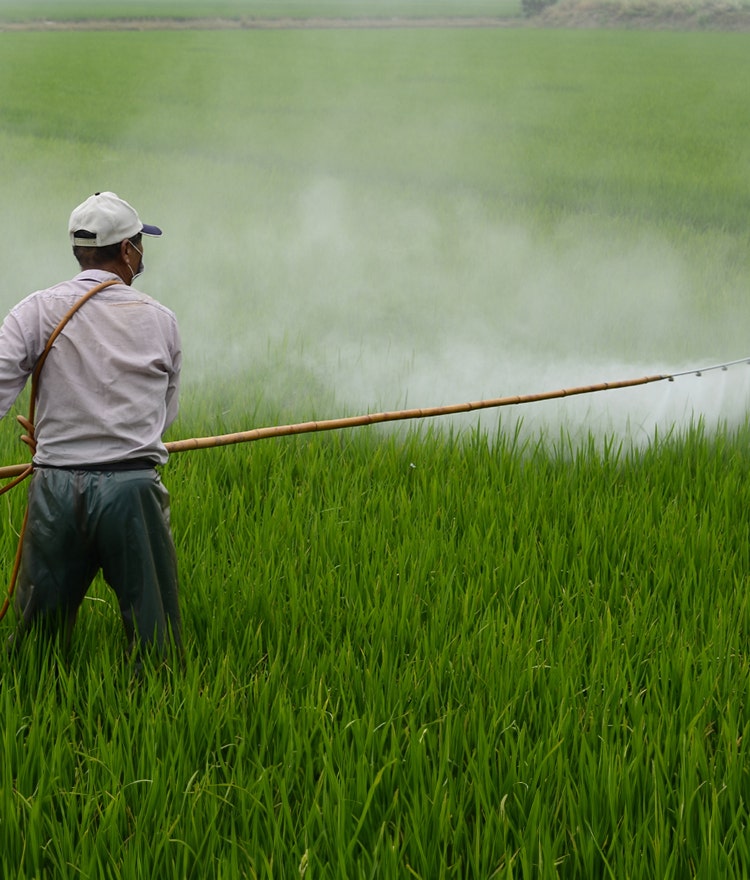
Few things are better than getting into a clean, cozy bed at the end of a long day. If you’re anything like us, you’re a lover of cotton fabric bedding. It’s durable, gentle on the skin and oh-so-soft – there’s truly nothing quite like it.
The bad news is that if your cotton sheets aren’t organic, they may not be as “clean and fresh” as you think. Conventional, non-organic cotton fabric can be full of harmful toxins, such as GMOs, pesticides, formaldehyde, aromatic solvent, heavy metals chlorine bleaching and more … not so cozy anymore, right?
But what is organic cotton, anyways? And is organic cotton fabric really better? We certainly think so! Keep reading to learn the benefits of organic cotton and why you should choose organic every time.
What is organic cotton?
Lesson number one? Not all cotton is created equal.
Organic cotton refers to cotton that is grown using methods and materials that have a lower impact on the environment. Unlike conventional cotton farming, which often relies heavily on toxic pesticides and fertilizers, organic cotton cultivation prioritizes chemically safe and sustainable practices. This includes:
- Organic fertilizers
- Crop rotation
- Biological pest control methods
- Non-GMO seeds
The aim of organic cotton production is to minimize the environmental footprint of cotton farming while also promoting biodiversity and preserving the health of ecosystems and communities involved in the cotton supply chain.
As a result, organic cotton is considered a more environmentally friendly and sustainable alternative to conventional cotton – better for people and planet.


How pesticides harm people and the planet
Pesticides, while intended to protect crops and control pests, can pose significant threats to both human health and the environment. Exposure to toxic chemical pesticides has been linked to a range of health issues in humans, including:
- Respiratory problems
- Neurological disorders
- Reproductive issues
- Certain cancers
Furthermore, pesticide residues can contaminate soil and water sources, affecting not only the immediate environment but also spreading through the food chain, potentially impacting wildlife and ecosystems. Pesticides also contribute to the decline of beneficial insects such as bees and butterflies, essential for pollination and maintaining biodiversity.
The rampant overuse of pesticides has led to the development of pesticide-resistant pests, necessitating even stronger chemicals or new strategies, perpetuating a harmful cycle. While pesticides may offer short-term solutions for agricultural challenges, their long-term consequences on human and environmental health simply are not worth their use.
More benefits of organic cotton
Organic cotton has emerged as a sustainable alternative to conventional cotton, offering a multitude of benefits for both the environment and human health. From reducing water usage to supporting rural communities, the benefits of organic cotton extend far beyond its material properties. Here are a few!
Environmentally friendlier
Organic cotton farming is designed to work in harmony with nature, significantly reducing the notoriously large ecological footprint associated with conventional cotton production. By avoiding toxic pesticides and fertilizers, organic cotton farming helps to preserve local wildlife and aquatic life, too.
Healthier for farmers
Switching to organic cotton cultivation protects farmers from the dangers associated with handling toxic pesticides and chemicals. This shift leads to a marked improvement in their overall well-being, reducing instances of chemical-related health issues and enhancing their quality of life.
Better soil quality
Organic cotton farming techniques, such as crop rotation and the use of natural compost, enrich the soil rather than deplete it. This sustainable approach ensures the soil remains fertile and productive for years to come, fostering a healthier agricultural landscape.


Reduced water usage
Organic cotton is grown using practices that naturally require less water, primarily because organic fields retain moisture better than those treated with synthetic chemicals. This conservation of water resources contributes significantly to environmental sustainability.
Safer for consumers
By eliminating the use of harmful chemicals in its production, organic cotton fabric offers a cleaner, safer option for consumers. This is particularly beneficial for individuals with allergies or sensitivities, ensuring that they can enjoy the comfort of cotton without added health concerns.
Support for rural communities
Organic cotton production often relies on small-scale farmers and cooperatives, offering them fairer trade conditions and economic stability. This approach helps uplift rural communities by providing sustainable livelihoods.
Long-term sustainability
The practices used in growing organic cotton, such as crop rotation and the use of organic pest control, are designed to ensure the long-term viability of farming. These methods help combat climate change and secure the future of agriculture by promoting ecological balance.
How to shop for organic cotton textiles


Ready to make the switch to organic cotton? Here’s how to do it the right way.
When shopping for organic cotton textiles, it's essential to prioritize certified organic products to ensure authenticity and adherence to organic standards – and to protect yourself from greenwashing. When it comes to organic products, the Global Organic Textile Standard, or GOTS, is the gold standard for certifications.
Research reputable brands and retailers known for their commitment to sustainability and ethical practices. Make sure that the companies you choose don’t also manufacture products that aren’t certified non-toxic under other brand names, or there could be cross contamination. (And wouldn’t you rather support a brand that cares about the environment, rather than one trying to profit off of your conscience?)
That’s where we come in. The Happsy Organic Mattress is GOTS certified organic, featuring organic cotton fabric and other materials that are made by and mindful of mother nature. (And it’s crazy comfortable, too!) Learn more about what makes a mattress sustainable beyond organic cotton or check out our mattress below.





